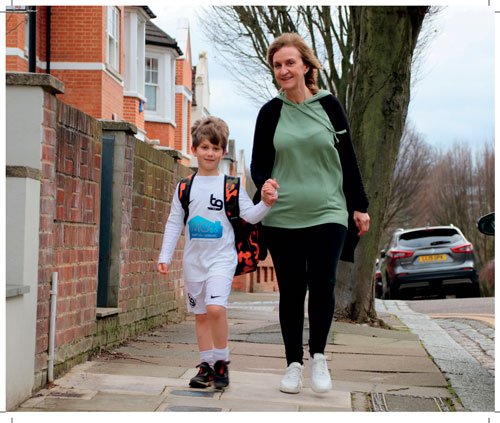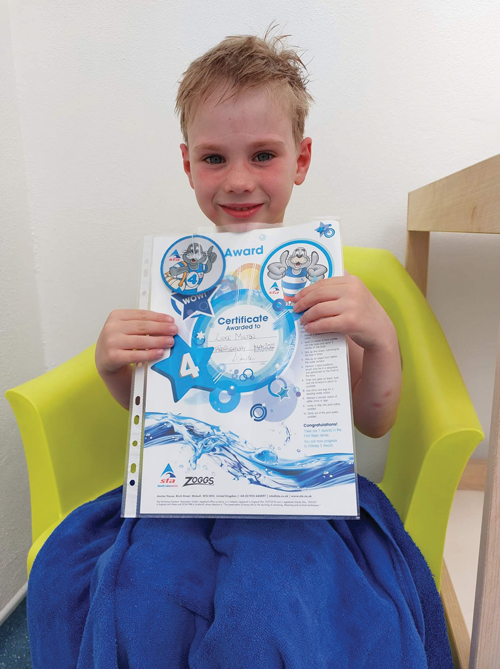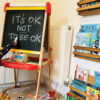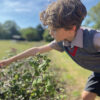
by Jackie Whitford
www.birth-wise.co.uk
“I’m pregnant with my first baby and all is going well. My sister has just had a baby and has told me all about it and given me the books she found useful. I think I have all the information and support I need.” I’ve heard this sort of viewpoint expressed ever since I started holding antenatal classes (over 40 years ago) but now followed by… “And of course I can get any other information from the internet!” So why indeed would you need an antenatal class?
Firstly, you will meet a group of women and their partners who are at the same stage in their lives and chances are you will meet your new friendship and support group. My own antenatal class pals are still great friends, meeting up regularly some four decades later!
Early parenthood is a time of big changes and transitions (like starting school or leaving home) and it is great to meet others on the same journey sharing all its excitement and uncertainty. My antenatal classes usually form their own WhatsApp groups – it’s good to chat to someone else who is in exactly the same boat when you are doing a feed at three o’clock in the morning!
Secondly, regardless of what worked (or didn’t) for your sister/friend/mum, labour and birth are as individual as you are. What was OK for them, may well not be for you. A good class will set out your choices. It should give you knowledge, skills and confidence as to where you have your baby and the options available to you. Through looking at the latest research and discussing with others, you can choose what feels right for you – whether it’s an elective caesarean or a hypnobirth.
A good antenatal class should also prepare you for Plan B – what if your labour doesn’t go as you had hoped? In a recent class, one of the women had planned and booked in for an elective caesarean. She was attending classes to make local friends and wasn’t really engaged with discussions about physiological labour. However, her baby decided to make an early and rapid entry into the world. She said, “Although I was shocked, it’s not what I had planned, I knew what to do. Somewhere I could hear you saying breathe out, relax, you can do this.” Labour and birth can be unpredictable and you need to be knowledgeable and confident to cope with all possible variations.
Which class?
I would recommend choosing a class that runs once a week over five or more weeks ideally to start from week 30 or 32 of your pregnancy. This gives you a chance to really get to know others in your group and a chance to practice the many comfort techniques introduced plus plenty of time for questions. Ideally your class will be run by someone with a breadth of experience both personally and professionally and be committed to supporting you in the birth experience that you want.
“I think attending a good antenatal class will prove to be one of your best decisions, with the benefits of ongoing support and friendship.”
Jackie Whitford runs Birth Wise classes in Lewes and Henfield. For further details please visit www.birth-wise.co.uk

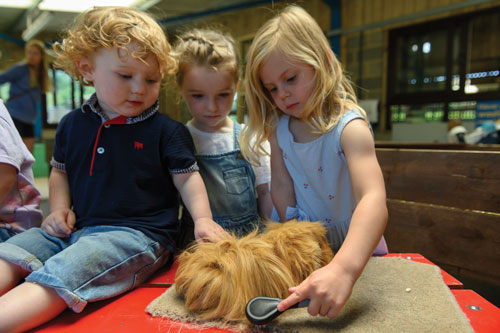
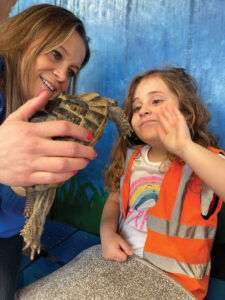 Animals also provide children with lessons about life (reproduction, birth, illnesses, accidents, death, and bereavement). Children have the opportunity to see lambs being born and eggs hatching. Animals provide knowledge in biology. When children spend time around the different animals they begin to understand basic biology and how that translates between animal species. Activities like grooming animals and feeding them, understanding what they eat and how food is digested, develops children’s knowledge and of course, children love discussing poo!
Animals also provide children with lessons about life (reproduction, birth, illnesses, accidents, death, and bereavement). Children have the opportunity to see lambs being born and eggs hatching. Animals provide knowledge in biology. When children spend time around the different animals they begin to understand basic biology and how that translates between animal species. Activities like grooming animals and feeding them, understanding what they eat and how food is digested, develops children’s knowledge and of course, children love discussing poo!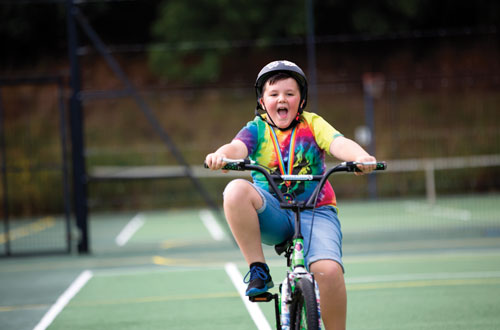
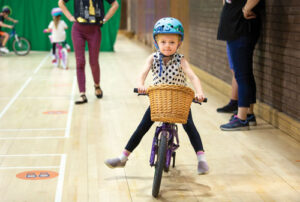 gular physical activity also has links to increased happiness, as well as giving children more opportunities to make friends and social connections.
gular physical activity also has links to increased happiness, as well as giving children more opportunities to make friends and social connections.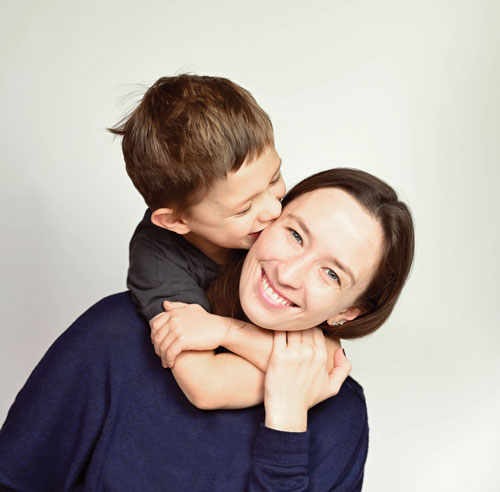

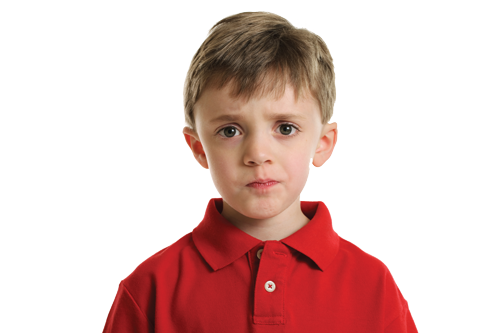

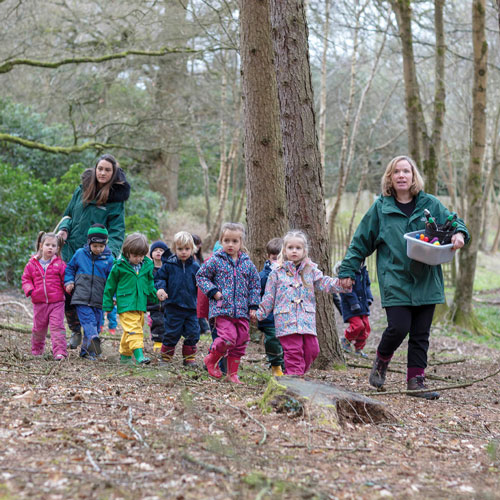
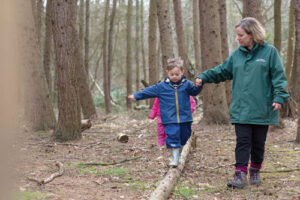 Helping schools to enhance their outdoor learning offering and ensure children can enjoy meaningful and effective lessons, the Forest School Association offers a national accreditation that schools can apply for to deliver both structured and unstructured outdoor sessions. At our school, we have a long-established Forest School programme, led by our own Forest School accredited teachers and trainers, who are able to deliver valuable outdoor sessions for children from the age of two upwards.
Helping schools to enhance their outdoor learning offering and ensure children can enjoy meaningful and effective lessons, the Forest School Association offers a national accreditation that schools can apply for to deliver both structured and unstructured outdoor sessions. At our school, we have a long-established Forest School programme, led by our own Forest School accredited teachers and trainers, who are able to deliver valuable outdoor sessions for children from the age of two upwards.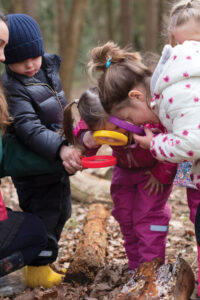 r experience, we have found that outdoor learning is particularly beneficial for younger children. They are given the space to be active and enjoy being noisy and messy, while engaging in play-based learning and exploration. With activities based on small, achievable steps, spending time outside helps to increase self-confidence and independence in the early years. Additional benefits of outdoor learning for younger children include improving their focus and attention, while physically helping to improve their balance, co-ordination and fine motor skills.
r experience, we have found that outdoor learning is particularly beneficial for younger children. They are given the space to be active and enjoy being noisy and messy, while engaging in play-based learning and exploration. With activities based on small, achievable steps, spending time outside helps to increase self-confidence and independence in the early years. Additional benefits of outdoor learning for younger children include improving their focus and attention, while physically helping to improve their balance, co-ordination and fine motor skills.